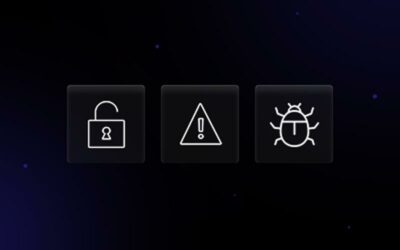Blockchain, when first introduced, took the world by storm. There were many predictions on how every field would be transformed by this technology, making it more secure and transparent. One of the major expectations of the use of blockchain was in elections. Amidst the many speculations of its scope and practicalities, the US state of West Virginia successfully conducted its primary elections by blockchain internet voting recently.
As set by the Declaration of Principles for International Election Observation, a democratic election has to have an accurate list of qualified voters, use equipment that clarifies their choices, and encourage citizens to participate effectively. However, it is not always that these conditions are met with or are followed precisely. And the difficulty of voting for many people has kept the voting percentage sadly low, with only around half of registered voters regularly participating.
It might be time to look into other possibilities. With the emergence of blockchain, is it possible that we have found the answer?
HOW DOES IT WORK?
Before looking into how blockchain could revamp the current system, let us look into how it works. The system essentially keeps track of every single step with records. The mechanism uses cryptography to secure data and link transactions to one another making it impossible to make any alterations or tampering.
Blockchain allows for mobile voting which could be done online. A voter registration process is still necessary to finalize who can and cannot take part. Once the registration is complete, each person would receive a token that allows them to vote once. The technology also eliminates the need for a central agency, when every registered elector is a node by themselves.
WHY BLOCKCHAIN?
Blockchain development seems like a very assuring way to tackle most of the obvious issues with the current voting systems.
Here are the two most acknowledged concerns that the democratic election system is facing currently:
Security concerns
Voting security has always been one of the biggest issues that every democratic election has faced. Keeping them secure is of the utmost importance from both technological and political perspectives. With blocks that are linked to multiple others, it is as secure as it could be, thus making the system nearly impossible to hack.
In the current system, there is a need for a central agency to overlook the whole process. By introducing mobile voting, each vote could be verified right after it is done, allowing each to be counted right away. The distributed ledger system is responsible for minimal security breaches.
Transparency concerns
Another aspect the public would like to see implemented is to increase the transparency of elections. The way to achieve that is by having open-source platforms that allow citizens to audit the application. Startups are now coming up with several such platforms encouraging the public to take part in the process.
Follow My Vote is one such open-source platform that uses government-issued IDs and webcams. The platform allows voters to cast in their choices and verify them online.
VoteWatcher allows custom generated ballets with QR codes preventing ballot scans more than once and allowing the vote units to be recorded and tracked. VotoSocial uses a similar method along with colored coins protocol to ensure that votes cannot be modified, deleted, or added while making it public and traceable. There are many more on the rise that could be put to use effectively to support a change.
WHAT’S THE FUTURE?
It appears like the system definitely needs a revamp. But that also means that associated laws like the Secure Elections Act legislation might need major reforms. It is also only fair to consider new technologies springing that could hack into a system we thought was unbreakable. The only way here is to test the water, slowly, one step at a time.
A major change like this is sure to have many hindrances along the way. But for the progress of the nation, it’s high time that we accommodate a change.



